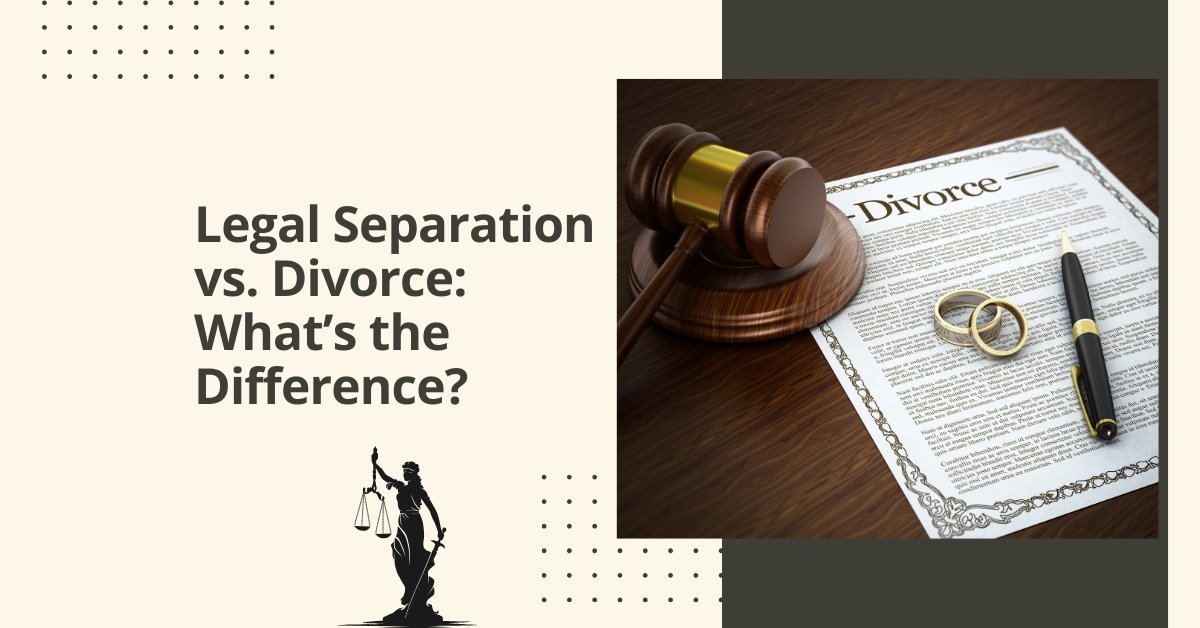How Divorce Affects Mental Health: Coping Strategies for Couples
 Divorce can be one of the most emotionally challenging experiences in a person’s life. It not only disrupts relationships but also has profound effects on mental health, both for the individuals going through it and for the couples involved. While the legal process is important, it’s the emotional and psychological toll that often requires the most attention. This blog post explores how divorce impacts mental health and offers coping strategies to help individuals navigate this difficult journey.
Divorce can be one of the most emotionally challenging experiences in a person’s life. It not only disrupts relationships but also has profound effects on mental health, both for the individuals going through it and for the couples involved. While the legal process is important, it’s the emotional and psychological toll that often requires the most attention. This blog post explores how divorce impacts mental health and offers coping strategies to help individuals navigate this difficult journey.
The Mental Health Impact of Divorce
Divorce triggers a series of emotional responses that vary from person to person, but some common psychological effects include:
1. Depression and Anxiety
The end of a marriage often results in feelings of sadness, grief, and loss, similar to the death of a loved one. This emotional upheaval can lead to depression, where feelings of hopelessness, sadness, and a lack of energy take over. Anxiety is also common, as individuals worry about their future, finances, and the well-being of their children.
2. Stress and Overwhelm
Divorce comes with a set of complicated legal and financial issues, which can create a sense of stress and overwhelm. Sorting out property division, child custody, and alimony can add pressure to an already difficult emotional situation. This stress may affect overall well-being, leading to sleeplessness, irritability, and an inability to focus.
3. Loss of Identity
For many people, marriage is a central part of their identity. Divorce can create a sense of disorientation and confusion, as individuals may struggle to define themselves outside of the relationship. The shift from “we” to “I” can be a significant blow to self-esteem and confidence.
4. Social Isolation
Divorce can lead to social isolation, especially if friends and family take sides or if a couple’s social circle is based on shared relationships. This loss of community and support can exacerbate feelings of loneliness and abandonment. Social isolation also increases the risk of developing mental health issues, such as depression.
5. Effects on Children
Divorce doesn’t just affect the couple—children also experience the mental health impact. They may feel confused, angry, or guilty about the separation. It can lead to behavioral issues, trouble with academic performance, or long-term struggles with trust and relationships as they grow older.
Coping Strategies for Individuals Going Through Divorce
While divorce undoubtedly presents significant challenges to mental health, there are several ways to cope and regain emotional stability. Here are some coping strategies:
1. Acknowledge Your Emotions
It’s important to allow yourself to feel the full range of emotions that come with divorce. Suppressing feelings of anger, sadness, or fear can prolong the healing process. Whether it’s through journaling, talking with a therapist, or confiding in close friends, expressing your emotions is key to managing mental health.
2. Seek Professional Help
Therapy can be incredibly helpful for those going through divorce. A mental health professional can provide a safe space to process emotions, help you develop coping strategies, and guide you through the psychological challenges of separation. Cognitive-behavioral therapy (CBT) and other approaches are effective for managing depression and anxiety during and after a divorce.
3. Practice Self-Care
Taking care of your physical health can help support your mental health during this time. Exercise, healthy eating, and adequate sleep are all important. Regular physical activity, in particular, helps reduce stress, improve mood, and enhance overall mental well-being.
4. Build a Support System
Don’t isolate yourself. Surround yourself with trusted friends, family, or support groups. Social connections provide comfort and help mitigate feelings of loneliness. If you don’t have an immediate support system, consider joining a support group for divorced individuals, where you can share experiences and receive emotional support from others who understand your situation.
5. Establish a New Routine
Divorce often disrupts the daily rhythm of life. Establishing a new routine can provide a sense of stability and normalcy. Create a new daily schedule that includes activities that promote self-care, such as exercise, hobbies, or spending time with loved ones. A predictable routine helps manage stress and offers a sense of control over your life.
6. Focus on Your Future
While it may be difficult, try to focus on what lies ahead. Set new personal goals, whether they’re related to your career, health, or personal development. Focusing on the future can provide a sense of hope and direction, which is essential for moving forward after divorce.
7. Limit Negative Self-Talk
It’s easy to fall into the trap of negative self-talk during or after a divorce. Avoid blaming yourself for the dissolution of the marriage, and try not to get caught up in feelings of inadequacy. Instead, practice self-compassion and remind yourself that healing takes time. It’s normal to experience ups and downs during this transition.
Coping Strategies for Couples Navigating Divorce
Divorce is often an emotionally charged process for couples, especially when conflicts arise over children, finances, or personal issues. If you are in the process of divorcing, here are some tips to help manage your mental health while navigating the separation:
1. Communication Is Key
Effective communication during a divorce is essential. Keeping the lines of communication open with your spouse, especially when it comes to important matters like child custody and finances, can reduce stress and prevent misunderstandings. Try to remain calm and avoid escalation during conversations.
2. Consider Mediation
If the divorce is contentious, mediation can be an effective way to resolve conflicts in a neutral environment. A mediator helps both parties work through their differences in a collaborative manner. This approach can reduce stress, save time, and minimize the emotional toll of a long, drawn-out court battle.
3. Establish Boundaries
Set clear boundaries with your ex-spouse, especially if children are involved. Keeping interactions brief and to the point can reduce the emotional strain of unnecessary communication. Having boundaries also helps in maintaining respect for each other during a difficult time.
4. Focus on Co-Parenting
If you have children, prioritize co-parenting. The mental health of your children depends on how well you manage your relationship with your ex-spouse. Consistency, clear communication, and cooperation in parenting can make the transition easier for everyone involved.
5. Take Time for Yourself
Finally, make sure to take time to recharge and take care of your own emotional health. Being in a relationship, especially a contentious one, can drain your energy. Spend time with loved ones, engage in hobbies, and do things that bring you joy.
Reclaiming Your Peace After Divorce
Divorce is undeniably a life-altering event, but it doesn’t have to define your future. With the right mindset, support, and coping strategies, you can regain your emotional strength and build a new life full of purpose and stability. Whether you’re navigating the emotional challenges alone or with children involved, help is available. If you’re looking for expert legal support to guide you through this process, consider speaking with the best divorce lawyer in Kondhwa, Pune who can offer compassionate and knowledgeable assistance tailored to your situation.
Most Recent Posts
Category
Explore Our Services
Empower Your Future with Expert Legal Guidance. Consult with Leading Divorce Lawyers at Adv.Mayur N. Gajbhiye for Professional, Compassionate Representation, Ensuring a Smooth and Informed Legal Journey.






